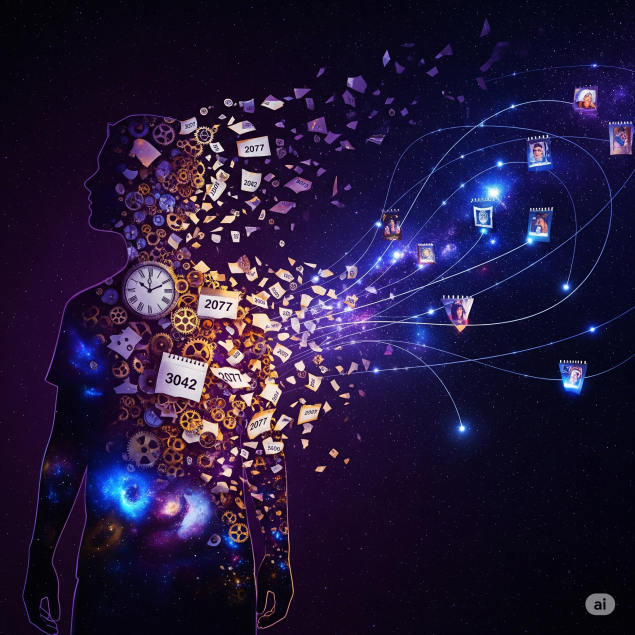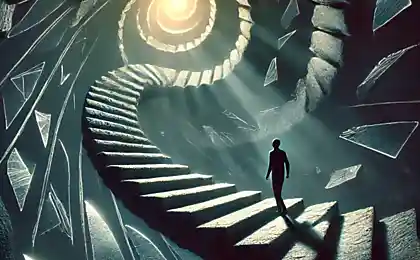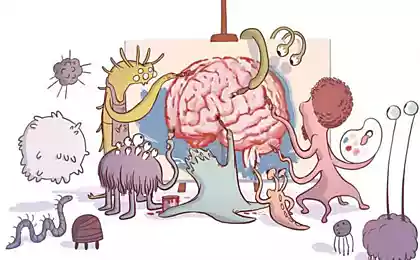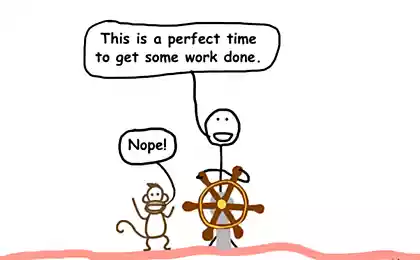40
12 Signs You Are Thinking Too Much About The Future
What if I told you that your obsession with the future could ruin your life right now? It sounds paradoxical, but this is exactly what happens to millions of people every day.

Imagine a person who lives like a character from Groundhog Day, just the opposite. Instead of reliving the same day over and over again, he mentally lives thousands of possible tomorrows, each full of potential disasters and setbacks. Familiar?
The future is an illusion that steals the present from us. We spend today’s energy fighting the ghosts of tomorrow’s problems that may never materialize.
Psychologists from Harvard University conducted a study that showed that people who are overly focused on planning the future are 40% more likely to experience anxiety disorders and 25% less likely to report feelings of happiness in everyday life. The paradox is that trying to secure our future, we destroy our present.
The Psychology of Temporary Obsession
Our brains evolved for survival, not happiness. The prefrontal cortex, which is responsible for planning, works like a hyperactive guard that sees threats where there are none. It was a useful feature when our ancestors needed to stock up on food for the winter. But in the modern world, this system fails.
Neuroscientific fact: When we think about the future for more than 30% of waking time, the same brain region that responds to a real physical threat is activated. The body does not distinguish between real danger and imagined danger; it reacts with stress in both cases.
12 Signs of Future Dependence
1 Constant concern about potential threats
You're going through disaster scenarios in your head as a horror film director. “What if I lose my job?”, “What if I get sick?”, “What if the economy collapses?” Your brain has become a nightmare factory operating 24/7.

2 Failure to enjoy the present
Even when something wonderful happens – a promotion, a dream date, a long-awaited vacation – you can’t completely relax. Your brain has already switched to the next stage: “OK, but what’s next?”
3 Perfectionist Planning
You make plans with the precision of a Swiss watch, considering every little thing. You have Plan A, Plan B, Plan C, and even Plan Z for the apocalypse. But when reality doesn't match your ideal scenario, you panic.
4 Paralysis when changing plans
Unexpected changes knock you off track more than an earthquake. A canceled meeting, a change of route, a sudden offer - all this causes you not curiosity, but panic.
5 Avoiding risk for fear of failure
You’re turning down amazing opportunities because they don’t guarantee 100% success. A new job, a move to another city, the beginning of a relationship – all this seems too risky for you.
Attention! Avoiding risk is also a risk. The risk of living a life of regret for what has not been done.
6 Financial anxiety with stable income
Even with a good salary and savings, you are always worried about money. You save more for a rainy day than you spend on living today. Your "black day" has become blacker than your present.
7 Postponing important decisions
You’re waiting for the perfect moment that never comes. Time goes by, opportunities are missed, and you're still analyzing and planning.
8 Life on standby
“I’ll finish the project – then I’ll rest”, “I’ll save money – then I’ll live”, “I’ll find the perfect partner – then I’ll be happy”. Your life has become an endless queue of happiness.

9 Constant comparison with others
You measure your progress by comparing yourself to others. Social media has become for you not entertainment, but a battlefield where you constantly lose the imaginary race for success.
10 Information dependence
You consume news, analytics and forecasts like a drug. You think that the more information you get about the future, the better you can prepare for it. In fact, you only increase your anxiety.
11 Dependence on external approval
You are afraid to make your own decisions because you have to take responsibility for them. It is easier to follow someone else’s advice – if something goes wrong, there will be no one to blame.
12 Losing faith in the possibility of happiness
You begin to see the future as an inevitable disappointment. Pessimism becomes your defense against potential pain, but also against potential joy.
How to break out of the trap of the future
Practical recommendations from leading psychologists
- Rule 10-10-10: When you make a decision, ask yourself, “How am I going to feel about this in 10 minutes, 10 months and 10 years?” This will help to separate the important from the imaginary.
- Anchoring in the Present Technique: Ask yourself every hour, “How am I feeling right now?” This will help bring attention back to the present moment.
- Limitation of planning: Set aside 30 minutes a day to plan for the future. Set a timer and strictly observe this restriction.
- The risk experiment: Do something new every week with no guarantee of results. Start small — try a new dish, meet a stranger, change the route home.
- Presence meditation: 10 minutes of daily meditation can significantly reduce anxiety about the future. Studies show effectiveness after 2 weeks of practice.
The future is created in the present. Every moment you live fully today becomes a brick of your happiness tomorrow.
History of transformation
Mark, a 34-year-old IT specialist from Moscow, was a classic future planner two years ago. He had detailed plans for 10 years ahead, three “spare” professions and savings for 15 different life scenarios. He was unable to drink his morning coffee because his brain was already drawing up a plan for the 2030 economic crisis.
The turning point was the usual walk with the dog. The dog stopped to smell the flower, and Mark actually noticed it was spring for the first time in months. “I realized that the dog lives more fully than I do,” he says. Today, Mark is practicing mindfulness, has switched to a more creative job and is planning a month ahead. “It turns out that life is much more interesting when you don’t know what will happen tomorrow,” he says.
Main conclusion
The future is important, but not enough to sacrifice the present for it. The best way to ensure a good tomorrow is to live today. Plan wisely, but live passionately. Prepare for tomorrow, but don’t forget to breathe today.
Remember, the only time you can really make a difference is now. Everything else is just a projection of your mind. Don’t let the ghosts of the future rule your life.
Glossary of terms
Prefrontal cortex
The area of the brain responsible for planning, decision-making and impulse control. Sometimes he works too actively, creating excessive anxiety about the future.
Mindfulness (Mindfulness)
The practice of focusing on the present moment without judgment. Helps reduce anxiety and improve quality of life.
Perfectionism
Striving for perfection, which often leads to procrastination, anxiety, and dissatisfaction with results.
Anxiety disorder
A mental state characterized by excessive and uncontrollable anxiety about future events.
Procrastination
Postponing important tasks for later, often associated with fear of failure or perfectionism.























